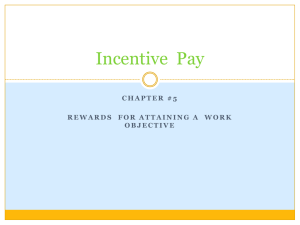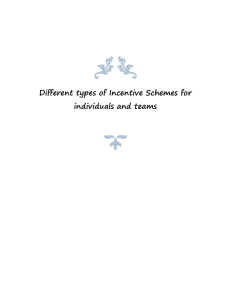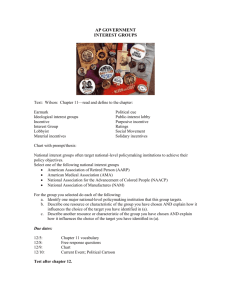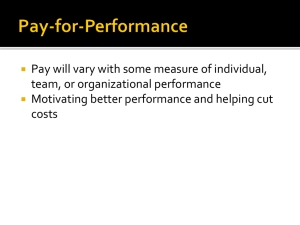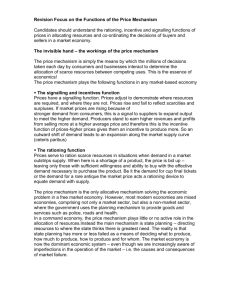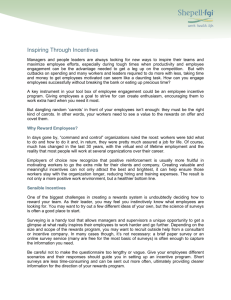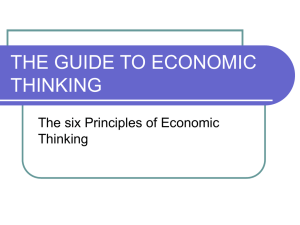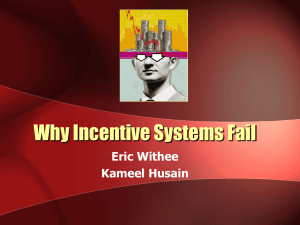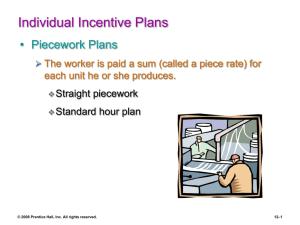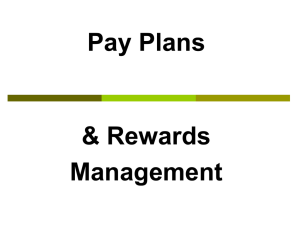Chapter #12 - UCO College of Business
advertisement
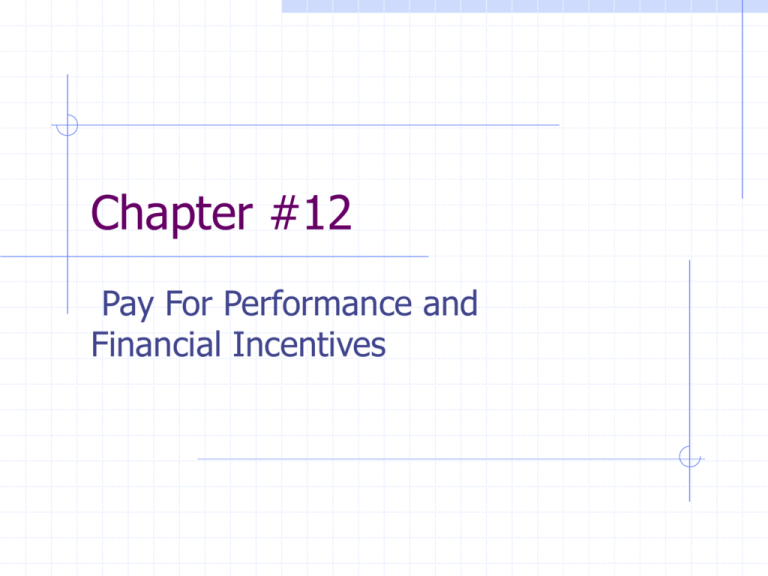
Chapter #12 Pay For Performance and Financial Incentives Performance and Pay Not all rewards are equal 70 % of all ee surveyed believed that their pay plans were ineffective Trends are for more variable rate pay Shifts business risk to employees Psychological insight Individual differences Personality #2 Needs theory (Maslow) Intrinsic v. extrinsic 5 step hierarchy Look page #439 Employee preferences for non cash incentives Frederick Herzberg & Edward Deci Hygiene factors v. motivators Both say that relying too much on extrinsic motivators is risky Intrinsic motivators are motivated by drive for competence and self determination #3 Instrumentality and Rewards Expectancy Theory Expectancy Instrumentality Valence Frederick Taylor: Scientific Management “One Best Way” Fair Day’s Work Quotas Standards Inspection and observation Today’s Emphasis… Pay For Performance Again Studies, Fortune 500 firms and Dupont More business risk on employees More mngt pay for performance More sales incentives Less base pay Types of Incentive Plans Variable pay based on performance. Base pay + one lump sum bonus Gift certificates.com Time off Incentives for operations people (actually do work) Piecework plans Oldest incentive Guaranteed base = increased pay for each piece over a standard (base) Rate busters Short term incentives Annual bonus Three basic issues to consider Eligibility Higher up you get more Fund size Individual Rewards IDEAAs program Mary Kay Recogiition EE of the month Long Term Incentives Stock options Right to purchase shares Idea is that stock value will go up Not working today Overseas execs get taxed twice on options 140,00$ bonus + 40,000$ in taxes Incentive for Sales People Fixed Salary Plan + Security – not results oriented Commission Plans + more incentive- neglect other duties -insecurity, - no sick pay – no vacation pay - higher turnover Combination Plans 80% base 20% commission Best of both worlds Set Sales Quotas Give sales incentives Merit Pay Salary increase based upon great performance Becomes part of base pay Lump sum merit pay (one time $) Profit Sharing Plans A plan that allow ees to share in firms profits Cash plans % of profits Lincoln incentive plans $ based upon merit rating of individuals Deferred profit sharing plans $ placed in trustee account, $ is there until retirement nd then taxed at lower amount Employee Stock Ownership Plan ESOP A firm contributes shares of its own stock to a trust. The trust distributes fund to ees upon retirement Problem too much delay Firm gets tax deduction Can also claim income tax deduction Develops sense of ownership in employees Scanlon Plans Developed by Joe Scanlon l937 Philosophy of cooperation “WE” attitude ee must understand company profits and losses Competence from ees Involvement Sharing of benefits As workers reduce costs that are rewarded Proceeds are shared Gainsharing An incentive that engages employees in a common effort to achieve productivity objectives and share the gains Same as Scanlon just today’s version
